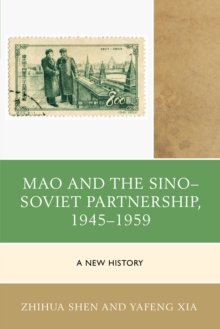
Dynamic Detente : The United States and Europe, 1964-1975 Hardback
by Stephan Kieninger
Part of the The Harvard Cold War Studies Book Series series
Hardback
Description
This book examines the dynamic evolution of Western détente policies which sought to transform Europe and overcome its Cold War division through more communication and engagement.
Kieninger challenges the traditional Cold War narrative that détente prolonged the division of Europe and precipitated America’s decline in the aftermath of the Vietnam War.
Rather, he argues that policymakers in the U.S. Department of State and in Western Europe envisaged the stability enabled by détente as a precondition for change, as Communist regimes saw a sense of security as a prerequisite for opening up their societies to Western influence over time.
Kieninger identifies the Helsinki Accords, Lyndon Johnson’s bridge building, and Willy Brandt’s Ostpolitik as efforts aimed at constructive changes in Eastern Europe through a multiplication of contacts, communication, and cooperation on all societal levels.
This study also illuminates the longevity of America’s policy of peaceful change against the background of the nuclear stalemate and the military status quo.
Information
-
Available to Order - This title is available to order, with delivery expected within 2 weeks
- Format:Hardback
- Pages:388 pages
- Publisher:Lexington Books
- Publication Date:23/03/2016
- Category:
- ISBN:9781498532419
Other Formats
- Paperback / softback from £41.25
Information
-
Available to Order - This title is available to order, with delivery expected within 2 weeks
- Format:Hardback
- Pages:388 pages
- Publisher:Lexington Books
- Publication Date:23/03/2016
- Category:
- ISBN:9781498532419










